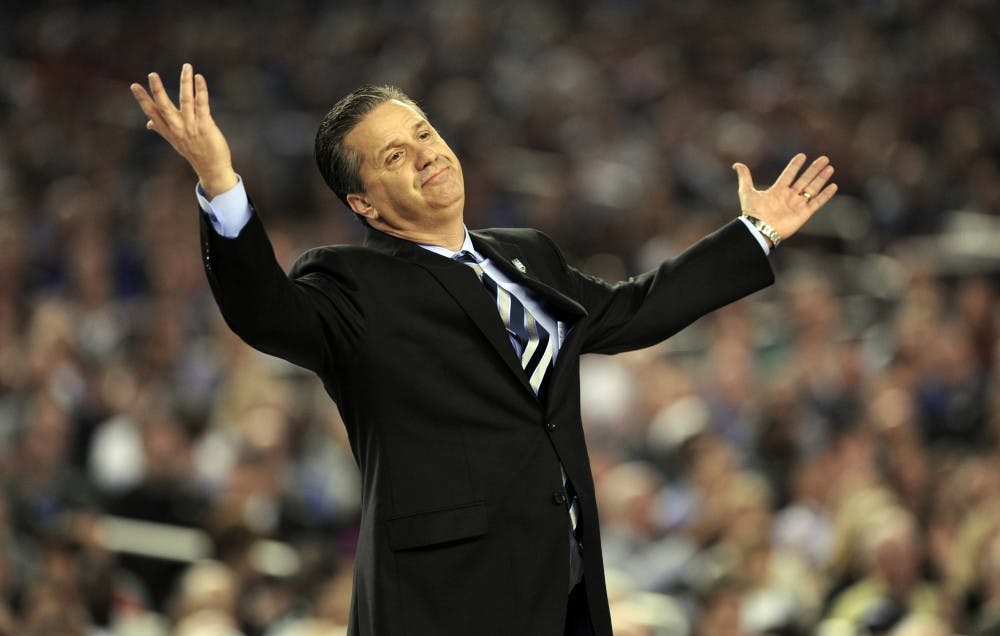The debate over whether or not collegiate athletes should be paid took an interesting turn following the men’s basketball national championship.
Senior Shabazz Napier, arguably the best player on the national championship-winning Connecticut Huskies team, said he had to overcome many hungry nights in college.
Oddly enough, the coach of team that lost the title game, Kentucky’s John Calipari, has ideas to make sure a situation like Napier’s happens less and less in his new book, “Players First: Coaching From the Inside Out.” The Wildcats’ coach lists a 13-point plan to reform the NCAA and help student-athletes.
Among the plan is an incentive allowing players to receive stipends between $3,000 and $5,000. The plan argues that the NCAA should cover eligible players’ insurance premiums and that athletes should be able to accept loans up to $50,000 in their future earnings. He also mentions that if a coach leaves a university, players should be able to transfer from that program without having to sit out a season. The focus here, though, would be more on the financial aspects of Calipari’s proposals.
Stipends of a few thousand dollars along with the full scholarship could prevent players like Napier from having those hungry nights. Or, it would give players a little extra money to get the items they need to succeed. If athletes like Napier and former Gamecock Jadeveon Clowney do so much to help their universities profit, the least they should get is some extra money to help take care of what they and their families need.
Calipari’s notion of accepting loans up to $50,000 would have been beneficial to someone like Clowney if he needed it. He has a chance to be the top pick in the NFL draft and thus should be seeing a lot of money in his pro career. He could have easily paid back the loan by the time he reached the NFL, and the loan would have helped give him and his family what they needed during his college career.
Now, nobody is saying Calipari is a saint with his numerous NCAA violations and how he handled former Memphis Tiger Derrick Rose’s enrollment with illegitimate SAT scores.
But all of the coach’s wrongdoings aside, he has some good points.
Would we have been upset if Clowney chose to sit out his junior season last year? Do we have any right to be disappointed if running back Mike Davis decides to leave this university after his junior year?
They both made — and still make — South Carolina millions of dollars through jersey sales and other endeavors with their performances. Yet they are not allowed to see any of that cash.
It seems unjust that athletes spend countless hours trying to perfect their craft, which in turn helps make the school profitable, and are not given proper compensation for their efforts. With the time athletes spend on their respective sports instead of academics, players seem more and more to be in the workforce as opposed to being an actual student-athlete. However, that discussion is for another day.
So even with all of Calipari’s bright ideas to help collegiate athletes financially, it still is not nearly enough. But at the very least, it would be a start.

